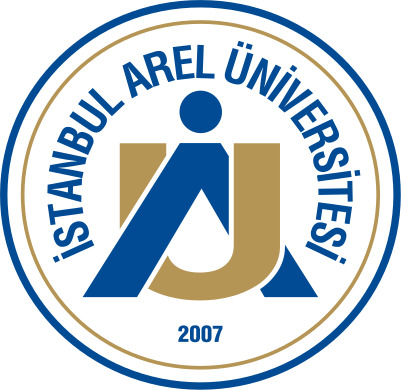Architecture
Overview
<!-- wp:paragraph --> <p><strong>Program Description</strong><br><strong>Architecture Master's Program at Istanbul Arel University: Designing the Future of Spaces</strong></p> <!-- /wp:paragraph --> <!-- wp:paragraph --> <p>The Master’s program in Architecture at Istanbul Arel University is designed for individuals who wish to deepen their knowledge and expertise in architectural design, urban planning, and construction techniques. This advanced program offers a blend of creative design, technical skills, and theoretical understanding of architecture, preparing students to become leaders in the architectural field. Through comprehensive coursework, hands-on projects, and critical analysis, the program focuses on both the artistic and functional aspects of architecture, allowing students to approach design with innovative, sustainable, and socially responsible solutions. Graduates of the program are equipped to shape the built environment and contribute to architectural advancements that meet modern needs while preserving cultural heritage.</p> <!-- /wp:paragraph --> <!-- wp:paragraph --> <p><strong>Program Mission and Vision</strong><br>The mission of the Architecture Master's program is to provide students with advanced design and technical skills necessary to become professional architects who are capable of responding to the evolving demands of the built environment. The program focuses on fostering creativity, innovation, and sustainable practices in architecture while emphasizing the importance of social responsibility and cultural sensitivity. Its vision is to produce visionary architects who will lead the development of spaces that enhance human experience, integrate environmental sustainability, and contribute to the global architectural discourse.</p> <!-- /wp:paragraph --> <!-- wp:paragraph --> <p><strong>Curriculum Structure</strong><br>The curriculum of the Architecture Master's program is designed to offer a comprehensive understanding of the many facets of architecture, from conceptual design to construction management. Key areas of study include:</p> <!-- /wp:paragraph --> <!-- wp:paragraph --> <p><strong>Advanced Architectural Design:</strong> This course focuses on the development of complex design solutions, incorporating aspects of form, function, and aesthetics. Students engage in intensive design studios, where they learn to create innovative designs for both public and private spaces, considering social, cultural, and environmental factors.</p> <!-- /wp:paragraph --> <!-- wp:paragraph --> <p><strong>Building Materials and Technology:</strong> Students study advanced building materials, construction techniques, and technologies that are essential for modern architectural practice. This course covers material properties, sustainable construction practices, and the integration of technology in building design.</p> <!-- /wp:paragraph --> <!-- wp:paragraph --> <p><strong>Urban Design and Planning:</strong> This course explores the principles and practices of urban design and planning, focusing on the development of public spaces, transportation systems, and urban infrastructure. Students learn how to design cities that are functional, sustainable, and responsive to the needs of diverse communities.</p> <!-- /wp:paragraph --> <!-- wp:paragraph --> <p><strong>Environmental Design and Sustainability:</strong> With a focus on sustainability, this course explores how architecture can address environmental challenges. Topics include energy-efficient buildings, green design principles, renewable energy technologies, and the role of architecture in climate change mitigation.</p> <!-- /wp:paragraph --> <!-- wp:paragraph --> <p><strong>Architectural History and Theory:</strong> This course provides an in-depth study of the history and theory of architecture, examining significant movements, architects, and the cultural context of architectural design. Students gain an understanding of how architectural styles have evolved over time and how theory informs modern architectural practices.</p> <!-- /wp:paragraph --> <!-- wp:paragraph --> <p><strong>Structural Systems and Building Codes:</strong> Students study the structural systems of buildings, including load-bearing systems, foundations, and materials. The course also covers building codes and regulations, ensuring students are prepared to design structures that are safe, compliant, and functional.</p> <!-- /wp:paragraph --> <!-- wp:paragraph --> <p><strong>Architectural Lighting and Acoustics:</strong> This course focuses on the design of lighting and acoustics in buildings. Students learn how to optimize natural and artificial lighting, as well as how to design spaces with appropriate acoustics to enhance comfort and functionality.</p> <!-- /wp:paragraph --> <!-- wp:paragraph --> <p><strong>Digital Design and Fabrication:</strong> This course introduces students to digital design tools and techniques used in modern architecture, including computer-aided design (CAD), 3D modeling, and digital fabrication methods. Students learn how to integrate these tools into their design process to create precise and innovative architectural models.</p> <!-- /wp:paragraph --> <!-- wp:paragraph --> <p><strong>Construction Project Management:</strong> This course focuses on the management of architectural projects from concept to completion. Topics include budgeting, scheduling, contractor coordination, and quality control. Students learn how to manage the complexities of large-scale construction projects.</p> <!-- /wp:paragraph --> <!-- wp:paragraph --> <p><strong>Architectural Ethics and Professional Practice:</strong> This course examines the ethical responsibilities of architects, including issues related to client relationships, environmental stewardship, and the impact of architecture on society. Students explore the role of architects in ensuring ethical practices in design and construction.</p> <!-- /wp:paragraph --> <!-- wp:paragraph --> <p><strong>Advanced Topics in Architecture:</strong> In this course, students explore cutting-edge issues and trends in architecture, such as smart buildings, urban resilience, and innovative construction techniques. The course encourages students to engage with contemporary debates and research in the architectural field.</p> <!-- /wp:paragraph --> <!-- wp:paragraph --> <p><strong>Capstone Project or Thesis:</strong> The program culminates in a capstone project or thesis, where students engage in original research or a comprehensive design project. This final project allows students to showcase their creativity and technical expertise, applying their knowledge to real-world architectural challenges.</p> <!-- /wp:paragraph --> <!-- wp:paragraph --> <p><strong>State-of-the-Art Facilities and Labs</strong><br>Istanbul Arel University offers state-of-the-art design studios, computer labs equipped with advanced software, and 3D printing facilities. These resources enable students to work on architectural designs, simulations, and prototypes, ensuring they have access to the latest technologies and tools used in the architectural field.</p> <!-- /wp:paragraph --> <!-- wp:paragraph --> <p><strong>Emphasis on Practical Experience and Industry Collaboration</strong><br>The Architecture Master's program emphasizes practical learning through internships, industry collaborations, and design workshops. Students gain hands-on experience by working on real-world architectural projects, collaborating with professionals in the field, and engaging in community design initiatives. These opportunities provide invaluable insights into the profession and help students build strong professional networks.</p> <!-- /wp:paragraph --> <!-- wp:paragraph --> <p><strong>Career Opportunities</strong><br>Graduates of the Architecture Master's program are well-prepared for a wide range of career opportunities in the architectural field. Career paths include roles such as architect, urban planner, interior designer, project manager, construction manager, design consultant, and architectural researcher. Graduates can work in architectural firms, government agencies, urban planning departments, construction companies, or as independent consultants.</p> <!-- /wp:paragraph --> <!-- wp:paragraph --> <p><strong>Shaping the Future of Architecture</strong><br>The Architecture Master’s program at Istanbul Arel University prepares students to become forward-thinking architects who are capable of designing innovative, sustainable, and culturally relevant spaces. With a strong emphasis on creative problem-solving, sustainability, and advanced design techniques, the program ensures that graduates are ready to lead the architectural field and contribute to shaping the built environment for the future. Through hands-on learning, research, and interdisciplinary collaboration, students develop the skills and vision to address the complex challenges of modern architecture.</p> <!-- /wp:paragraph -->
Program Description
The Architecture program at İstanbul Arel University offers a comprehensive curriculum designed to prepare students for successful careers in this dynamic field. The program combines theoretical knowledge with practical skills, ensuring graduates are ready for the challenges of the industry.
The program is taught by experienced faculty members who are leaders in their respective fields, providing students with insights into current industry practices and future trends.
Curriculum Highlights
- Advanced Research Methods: Learn cutting-edge research techniques and methodologies.
- Industry Analysis: Explore current industry trends and develop analytical skills.
- Leadership and Management: Develop essential leadership skills for managing teams and projects.
- Innovation and Entrepreneurship: Cultivate creative thinking and entrepreneurial mindset.
- Digital Transformation: Understand how technology is reshaping industries and businesses.
- Sustainable Development: Explore environmentally sustainable practices and their implementation.
- Global Markets: Study international market dynamics and global business operations.
- Technology Integration: Learn to leverage technology for improved business outcomes.
Requirements:
- Bachelor's degree (for Master's programs) or equivalent qualifications.
- Proven English language proficiency (IELTS 6.5+ or equivalent).
- Complete transcripts from previous education.
- A compelling letter of motivation explaining your interest in the program.
- Two letters of recommendation from academic or professional references.
- Valid passport with appropriate visa status or eligibility.
Benefits:
- World-class faculty with extensive industry experience.
- Modern campus facilities and cutting-edge learning environments.
- Strong industry partnerships providing networking opportunities.
- Internship opportunities with leading companies in the field.
- Comprehensive career services including job placement assistance.
- Access to a global alumni network for lifelong professional connections.
Begin your educational journey today.
Apply now and take the first step towards your future.






